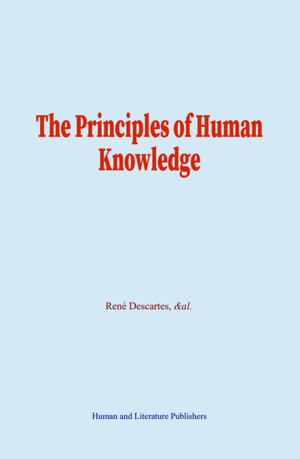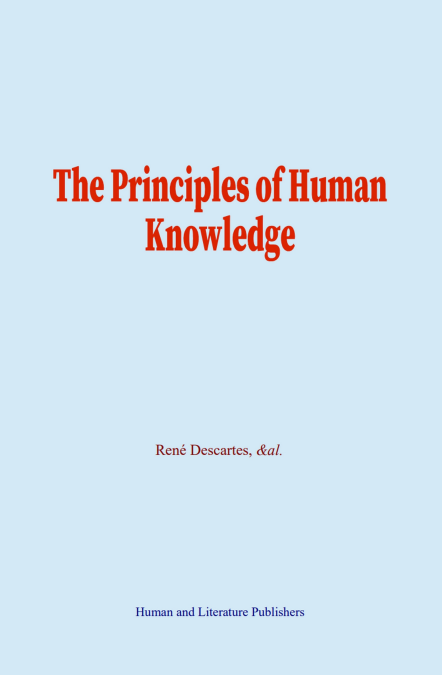
- Retrait gratuit dans votre magasin Club
- 7.000.000 titres dans notre catalogue
- Payer en toute sécurité
- Toujours un magasin près de chez vous
- Retrait gratuit dans votre magasin Club
- 7.000.0000 titres dans notre catalogue
- Payer en toute sécurité
- Toujours un magasin près de chez vous
Description
It is evident to anyone who takes a survey of the objects of human knowledge, that they are either ideas actually imprinted on the senses; or else such as are perceived by attending to the passions and operations of the mind; or lastly, ideas formed by help of memory and imagination – either compounding, dividing, or barely representing those originally perceived in the aforesaid ways...
«That in order to seek truth, it is necessary once in the course of our life, to doubt, as far as possible, of all things.
As we were at one time children, and as we formed various judgments regarding the objects presented to our senses, when as yet we had not the entire use of our reason, numerous prejudices stand in the way of our arriving at the knowledge of truth; and of these it seems impossible for us to rid ourselves, unless we undertake, once in our lifetime, to doubt of all those things in which we may discover even the smallest suspicion of uncertainty...
That we ought also to consider as false all that is doubtful.
Moreover, it will be useful likewise to esteem as false the things of which we shall be able to doubt, that we may with greater clearness discover what possesses most certainty and is the easiest to know...»
Spécifications
Parties prenantes
- Auteur(s) :
- Editeur:
Contenu
- Langue:
- Anglais
Caractéristiques
- EAN:
- 9782381118635
- Date de parution :
- 28-10-23
- Format:
- Ebook
- Protection digitale:
- Digital watermarking
- Format numérique:
- ePub

Les avis
Nous publions uniquement les avis qui respectent les conditions requises. Consultez nos conditions pour les avis.






